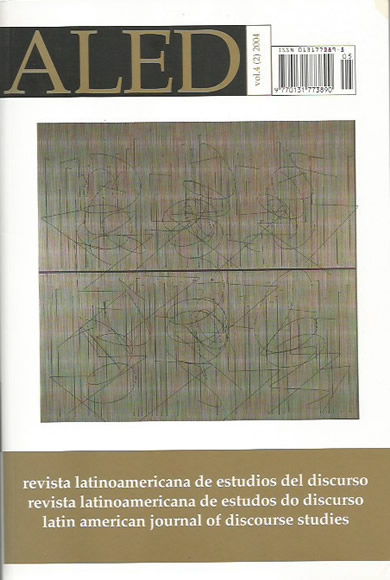Las metáforas políticas en el discurso de dos líderes venezolanos
Hugo Chávez y Enrique Mendoza
DOI:
https://doi.org/10.35956/v.4.n2.2004.p.91-113Keywords:
cognitive semantics. metaphors. macrometaphors. Venezuelanpolitical leaders. sense relations.Abstract
In this paper I describe and analyse metaphorical schemes and expressions, within the framework of cognitive semantics, focusing on the metaphors and macrometaphors used by two Venezuelan leaders, Hugo Chávez and Enrique Mendoza, at the end of the electoral campaign previous to the revocatory referendum of Hugo Chavez´s presidency, which took place in August 2004. The study shows how the present political discourse, particularly electoral discourse, recurrently and profusely appeals to metaphors, given that the use of these structures transform complex amd abstract notions into images that are easily grasped and that produce a great effect in the audiences. The use of metaphors aims at avoiding direct references that might result too committed or revealing, and also at producing greater cognitive effects in the addressees through the creation of particular sense relations, inferences, or the communication of unconventional images.
Downloads
References
BOVES, C. (2004). La metáfora.Madrid: Gredos.
CHUMACEIRO, I. (2003). Discurso Político: teoría y análisis.Caracas: Escuela de Letras”“ UCV (trabajo de ascenso a profesora Titular, inédito)
CUENCA, M. J. y HILFERTY, J. (1999). Introducción a la lingüística cognitiva, pp.97-124.Barcelona: Ariel.
CHILTON, P. y SCHÄFFNER, C. (2000). Discurso y política. En T. van Dijk (comp.),Eldiscurso como interacción social. Estudios del discurso: introducción multidisciplinaria, vol. 2, pp. 297-329.Barcelona: Gedisa.
HERNÁNDEZ, M. L. (2004). La metáfora política en la prensa venezolana: un estudiolingüístico cognitivo.Opción,20, 44, 56-77.
LAKOFF, G. (1995). Metaphor, morality and politics. Webster is World of CulturalIssues, 1995. http:// w.w.w. wwcd.org/issues/Lakoff.html.
LAKOFFG. Y TURNER, M. (1989). Morethan Cool Reason. A field Guide to PoeticMetaphor.Chicago: The University of Chicago Press.
LAKOFF, G. Y JOHNSON, M. (1995) [1980]. Metáforas de la vida cotidiana. Madrid: Cátedra. Col. Teorema.
PÉREZ, J.C. (2002). Metáforas que expresan la intensidad emocional en el discursoEspañol. Oralia, 5, 323-332.REYES, G. (2002). Metapragmática. Valladolid: Universidad de Valladolid.
Downloads
Published
How to Cite
Issue
Section
License

This work is licensed under a Creative Commons Attribution-NonCommercial-NoDerivatives 4.0 International License.
The authors retain the copyright and guarantee RALED the right to be the first publication of the work as well as a Creative Commons Attribution License that allows others to share the work with recognition of authorship and the initial publication in this journal.







